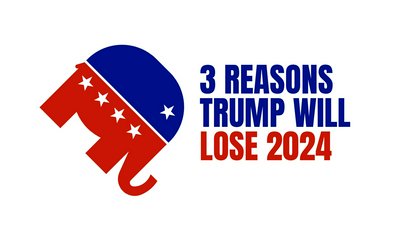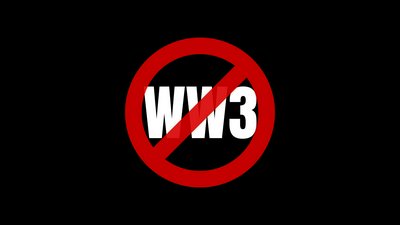economyFrance
Housing Bubble Reflects a Weakness in the Chinese System
Lack of checks and balances in the Chinese system makes course correction more difficult, which led to today's housing bubble. Fortunately, China has an opportunity to deflate the bubble, but the rule of law must be implemented for long-term stability.
Published by Dr Jiulin Teng on 27 Oct 2021

In the 1950s, China entered into a feverish drive to transfer the way its agriculture and industrial economies were organized. After the “century of humiliation”, these sectors were in severe need of reform and modernization. However, under the first generation of communist leaders, China went beyond what the Soviet experts considered reasonable. The results were disastrous. By the end of Cultural Revolution, China almost surrendered all early developments since the communist rule.
In the 1990s, China began the drive to reform its housing sector. After the fall of the Soviet Union, China entered a “honeymoon period” with the US. Many cadets went to the US and brought back many uniquely American ideas. More on this later. At this point, it became understood that centrally-controlled housing, which basically means that everyone gets housing based on their needs that the government deems, was inefficient. Moreover, many in Chinese cities still lived in the same conditions left from before 1949, while the housing situation had not significantly improved in the countryside since the establishment of the People’s Republic, either. Many lacked access to sanitary facilities in their homes.
Under these circumstances, the Chinese government decided to liberalize the housing sector. Publicly-owned apartments were given to the occupants, while new houses would be built by private companies and sold for a profit.
After three decades, the housing sector has reached close to 30% of China’s GDP. To 1.4 billion Chinese people, housing affordability is among the worst, if not the worst, across the world. Valued at $63 trillion, several times China’s annual GDP, and constituting 69% of the personal wealth of all Chinese citizens, this is the biggest bubble in the history of mankind.
Lack of Checks and Balances
Internationally, Chinese leaders and foreign affairs officials are quick to point out, and correctly so, that the US cannot expect a “unipolar” world order to long endure. Domestically, however, they are averse to the idea of checks and balances, either resorting to “cultural difference” as the argument or directly suggesting that the idea of checks and balances is an imperialist concept espoused by the corrupt capitalist system (even though by many measures the Chinese system is considerably more capitalist than many systems, notably those in Europe).
In this context, government initiatives do not receive sufficient debate in the public square. At the local level, crucial economic decisions are made by a small group of local officials, sometimes comprising of a single person. Ironically, the central government has less control over the development of local economies as a result.
If there had been checks and balances, the opposite would happen: Government initiatives would receive thorough scrutiny before being put into law. Under the rule of law, local officials cannot make up local rules that go counter to the initiative that the public on a national level have agreed on and that the central legislature has approved.
Due to this lack of checks and balances, and driven by the desire to boost local GDP numbers (which is one of the most important “KPI” for promotions), local government officials across the country committed the country to blowing up an ever-growing housing bubble.
Fearful to Acknowledge Mistakes
While the lack of checks and balances may explain why there was a willingness to blow up the housing bubble, it does not fully explain why there has yet to be a course correction, even though the bubble had already reached biblical proportions 10 years ago. The main reason, in my opinion, is that the Chinese system is unkind to those who have made mistakes. The need to be right all the time makes course correction virtually impossible.
The source of this fear of accepting policy errors is again the lack of checks and balances.
Since policies are not publicly debated before being introduced. The public do not have ownership of them. Chinese leaders must have been aware of the growing housing bubble, but they cannot identify a weak to deflate it without accepting some blame for causing the bubble, and they still lack the courage to do so.
Instead, they talk up Confucius ideas, which essentially say that elders and higher-ups know more than others, and that not understanding their perspectives is the result of lack of knowledge and experience. To some extent, this is not incorrect. However, however much knowledge and experience one has, there is always a chance of making mistakes, and making it impossible to acknowledge one’s mistake has a high cost indeed.
Deflating the Bubble
While some in China (and abroad) still believe that the housing market in China will continue to grow, this is simply impossible: Can China’s GDP be 50% from building houses? Can 100% of the wealth of Chinese citizens be in their apartments? In other words, can China build houses without food?
At some point, and in my opinion that point is now, continued expansion becomes impossible.
I do not even go into the debt situation, which in short has exploded. There is no need to talk about the environmental impact. Of course, the housing bubble also created a landlord class that, ironically, was the opposite of what the first-generation communist leaders wanted to eradicate: Indeed, when buying and selling houses are MUCH more lucrative than working, no system can long endure. It is neither communist nor capitalist. It is an aberration in the economy, a symptom of irrational exuberance.
Perhaps the Chinese people are fortunate. Right at this point, the Federal Reserve and the BH administration are digging themselves in an inflationary quagmire. On this topic, I have discussed extensively on my podcast, and I will not repeat myself here.
The opportunity for China is to guide the housing price downward as the global inflationary cycle takes its course.
Number-wise, China would see no or little GDP growth. However, a slow deflation of the housing market, paired with the inflationary pressure from the global economy, can result in a more stable Chinese economy. In this process, adjustments can be made to reallocate formerly misallocated resources to strategic industries.
Can China Overcome This?
It is rather difficult to predict how China will come out of this bubble burst: It could have a controlled deflation of the housing market and come out with a more efficient economy, or it can mishandle the situation and suffer from long-term consequences à la Japan.
Unfortunately, China’s lack of checks and balances in its system means that the judgment of a handful of officials determine the fortune of the nation. In the long run, this is a suboptimal situation that needs to be redressed.



